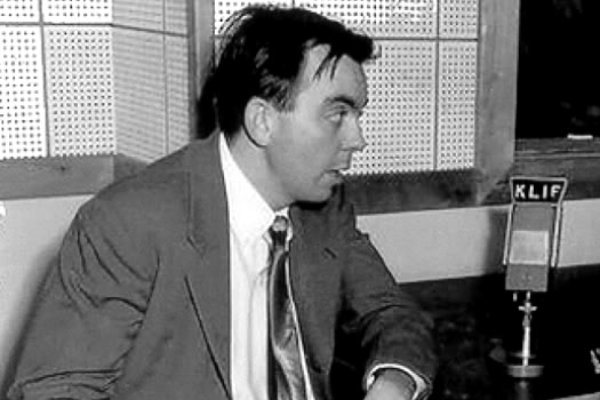
Gordon McLendon’s Lasting Legacy
In the pantheon of radio pioneers, Gordon McLendon stands tall as a true innovator whose influence continues to shape broadcasting decades after his heyday. Known as “the Maverick of Radio,” McLendon’s career spanned the 1950s through the 1970s, leaving an indelible mark on the industry that resonates even in today’s digital age.
Born in 1921 in Paris, Texas, McLendon’s journey in radio began modestly with the purchase of KNET in Palestine, Texas in 1946. However, it was his acquisition of KLIF in Dallas the following year that would set the stage for a broadcasting revolution. While Todd Storz is often credited with inventing the Top 40 format, it was McLendon who refined and popularized it, turning it into a nationwide phenomenon.
In 1954, McLendon introduced his version of the Top 40 format to KLIF, transforming it into a ratings powerhouse. The McLendon approach was characterized by streamlined playlists, fast-paced presentation, and innovative use of jingles and station imaging. This formula proved incredibly successful, with KLIF achieving market shares over 50 percent in Dallas during the 1950s and 1960s.
McLendon’s success with KLIF led to the creation of a broadcasting empire that spanned multiple markets and formats. Stations like KILT in Houston, KABL in San Francisco, and WYSL in Buffalo brought the McLendon sound to new audiences across the country. By the time the McLendon family sold their broadcasting properties in 1979, the empire included fourteen radio stations and two television stations, valued at approximately $100 million.
But McLendon’s innovative spirit extended far beyond the Top 40 format. He is credited with several other radio firsts, including the introduction of mobile news units, regular traffic reports, and the elevation of radio jingles to an art form. Perhaps most notably, McLendon pioneered the all-news format with stations like WNUS in Chicago and XTRA in Los Angeles.
Central to McLendon’s Top 40 format was the concept of the “Boss Jock” – a charismatic, high-energy DJ who became as much a part of the station’s brand as the music itself. These personalities were carefully selected and trained to embody the McLendon sound. DJs like Jimmy Rabbitt at KLIF and Chuck Dunaway at KILT became local celebrities, their voices instantly recognizable to listeners across their respective markets.
McLendon understood that music alone wasn’t enough to maintain listener loyalty. He pioneered the use of outrageous promotions and contests to keep audiences engaged and talking about his stations. Money drops, treasure hunts, and mystery sound contests created a sense of excitement and community around McLendon stations, boosting ratings and cementing their place in local popular culture.
The influence of McLendon stations extended beyond the radio studio and into the music industry itself. The tight playlists and heavy rotation of hit songs on McLendon stations could make or break a record’s success. As a result, record labels and artists cultivated close relationships with McLendon and his programmers. A spin on a McLendon station could catapult a record up the charts, making Gordon McLendon a key figure in the music industry.
While radio was always his first love, McLendon’s entrepreneurial spirit led him to explore other areas of media and entertainment. The McLendon family owned over 40 movie theaters and drive-ins, and Gordon himself co-produced two cult classic B-movies in 1959. He was also involved in pioneering offshore “pirate” radio stations in Europe and authored several books later in life.
As we reflect on McLendon’s career from our perspective in 2025, it’s clear that his influence on radio broadcasting cannot be overstated. Many of the programming principles he developed continue to shape radio formats today. The concept of a carefully curated playlist, the use of jingles and station imaging to create a distinct identity, and the emphasis on promotions and contests to build audience loyalty are all direct descendants of McLendon’s innovations. For current radio professionals, McLendon’s career offers valuable lessons in innovation, audience engagement, and brand building. His willingness to experiment, his deep understanding of audience psychology, and his commitment to local communities provide a blueprint for success that remains relevant in today’s rapidly evolving media landscape.
Beyond his professional achievements, Gordon McLendon was a complex and fascinating individual. A brilliant student who attended Yale, he served as a Naval Intelligence officer during World War II before embarking on his radio career. His interests were eclectic, ranging from numismatics to politics, and he maintained friendships with figures as diverse as Richard Nixon and J. Edgar Hoover.
As the radio industry continues to navigate the challenges of the digital age, the legacy of Gordon McLendon serves as both an inspiration and a challenge. In an era of fragmented audiences and on-demand content, his fundamental principles – engaging content, strong branding, and a deep connection with listeners – remain as relevant as ever.
The radio landscape has changed dramatically since McLendon’s heyday, but the spirit of innovation and showmanship that made him the true Maverick of Radio continues to inspire broadcasters around the world. As we look to the future of radio, we would do well to remember the lessons of this pioneering figure who understood, perhaps better than anyone, the unique power of radio to inform, entertain, and connect communities.
Written by: studio
Similar posts
Recent Comments
No comments to show.-

Retro Rewind
With Kenneth Dell
For every Show page the timetable is auomatically generated from the schedule, and you can set automatic carousels of Podcasts, Articles and Charts by simply choosing a category. Curabitur id lacus felis. Sed justo mauris, auctor eget tellus nec, pellentesque varius mauris. Sed eu congue nulla, et tincidunt justo. Aliquam semper faucibus odio id varius. Suspendisse varius laoreet sodales.
close Top popular
© Copyright 2025 Aircheck Radio - is a proud listener supported 501(c)(3) nonprofit organization










